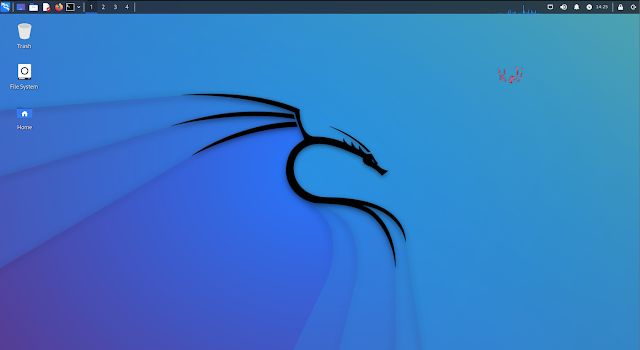Linux is a popular operating system among hackers due to its
open-source nature and flexibility. It allows for customization and the ability
to run a wide range of tools and scripts.
One of the primary advantages of using Linux for hacking is
its command-line interface (CLI). The CLI allows for powerful automation and
scripting capabilities, making it easy to automate repetitive tasks and
streamline workflows. The ability to write scripts in various programming
languages such as Bash, Python, and Perl also makes it a powerful platform for
developing custom tools.
Another advantage of Linux is its stability and security.
Linux is known for its low susceptibility to viruses and malware, making it a
safer option for hacking activities. It also offers advanced security features
such as SELinux and AppArmor, which can be used to restrict access to specific
files and programs.
One of the most popular distributions of Linux for hacking
is Kali Linux. It is a Debian-based distribution that is specifically designed
for penetration testing and digital forensics. It comes pre-installed with a
wide range of hacking tools, including Nmap, Metasploit, and Wireshark. It also
has a comprehensive set of documentation and tutorials to help users get
started with penetration testing.
Another popular distribution for hacking is BackBox Linux,
which is also based on Ubuntu. It comes pre-installed with a wide range of
hacking tools, including Metasploit, Nmap, and Wireshark. It also includes a
set of scripts and utilities to help automate various tasks such as network
scanning and vulnerability assessment.
In addition to these distributions, there are many other
Linux distributions that are suitable for hacking, such as Parrot OS,
BlackArch, and Cyborg. Each of these distributions has its own set of tools and
features, and users should choose the one that best meets their needs.
When using Linux for hacking, it's important to be familiar
with the basics of the operating system, including the file system,
command-line interface, and basic system administration tasks. This will allow
you to navigate the operating system and run the tools you need to effectively
carry out your hacking activities.
In conclusion, Linux is a powerful and flexible operating
system that is well-suited for hacking activities. Its open-source nature and
wide range of tools and scripts make it easy to customize and automate tasks.
Its stability and security also make it a safer option for hacking activities.
Popular distributions such as Kali Linux and BackBox Linux come pre-installed
with a wide range of hacking tools and are great options for getting started
with penetration testing and digital forensics.
Additionally, Linux provides a great deal of control over
the system, allowing users to fine-tune the operating system and optimize its
performance for specific tasks. This is especially useful for
resource-intensive tasks such as packet sniffing and network monitoring.
It is important to note that hacking is illegal and
unethical activities and it is important to use the knowledge and tools
acquired from Linux and other resources legally and ethically. For example,
using these tools for penetration testing and vulnerability assessments to
identify and remediate security issues within your own organization is
perfectly legal and ethical.
Furthermore, Linux is widely supported by the open-source
community, which means that users have access to a wealth of information and
resources, including forums, tutorials, and documentation. This can be
extremely helpful when trying to troubleshoot problems or learn new skills.
In summary, Linux is a powerful, stable and secure operating
system that provides a wide range of tools and scripts for hacking activities,
it provides a great deal of control and flexibility. But, it's important to use
the knowledge and tools legally and ethically, and use it for penetration
testing, vulnerability assessments, and other legal and ethical activities.
 Reviewed by Cyber Sec
on
January 27, 2023
Rating:
Reviewed by Cyber Sec
on
January 27, 2023
Rating:





No comments: